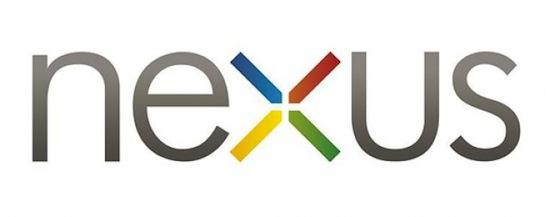
Every year, there are a few things we can expect to happen in the mobile industry. We have grown to expect that Apple will unveil a new iPhone. We’ve grown accustomed to Google showcasing their latest and greatest major update to the Android platform. And, we can now bet that we’ll see Google also unveil the newest member of the Nexus family. We know where it all started. We know which devices have made their way into the public eye since then. But, a new rumor to the Nexus mill has certainly caused a new focus to be put on the Nexus name.
Even Taylor is excited about it.
The newest rumor, and it’s one that we’ve actually heard before in the past, is that Google will be working with multiple manufacturers to create not just one Nexus device, but several. And it just won’t be a difference in networks, either. No, the idea this time around seems to be that Google wants to create different smartphones and maybe even tablets, all from different manufacturers like Motorola, LG, HTC and Samsung. The kicker is that these devices would be available through Google’s Play Store, and not branded by any particular carrier.
Yes, we’ve seen Google try this before. No, it didn’t work. There’s no denying that the carriers here in the United States have a pretty firm grasp on most everything that happens in the mobile industry, specifically when it comes to the customer. However, purchasing unlocked devices isn’t a new fad, and it certainly won’t go away any time soon. It saves you from a contract if you don’t want to sign a new one, or extend yours at any time.
But, it does cause some problems for those on a CDMA network, which is one reason why we never saw the Nexus One by HTC release for Verizon’s or Sprint’s network. More often than not, unlocked devices are created for GSM networks, because those SIM cards make it quite easy.
Of course, 4G LTE works with SIM cards, so that would be a workaround. The devices would still have to be CDMA, though, to work with Verizon’s (and eventually Sprint’s) network.
In any event, I didn’t raise the fact that Google has tried this before just to point out that it could fail again. Actually, if Google were to actually support it and stick with it, I don’t see why Google couldn’t sell phones from their Google Play Store. The GSM version of the Galaxy Nexus is already there, and if Google can stay competitive on pricing, it could be a big hit for them.
I just have a problem with multiple Nexus devices. At this point, a Nexus handset is indicative of only one thing: pure Android. Yes, it’s supposed to be meant for developers, but when there’s only one vanilla (main stream) Android option, using a Nexus handset to develop for Android only goes so far. Developers have to make sure that their applications work on handsets that have skins, because the majority of sales go to HTC, Samsung (with their TouchWiz handsets), and Motorola. These devices aren’t vanilla Android.
Releasing multiple Nexus devices just means you’re releasing vanilla Android handsets to the consumer, something that many people want. It also means that you’ve completely accepted the fact that the Nexus name doesn’t actually count for anything anymore. It isn’t your high-end name brand. Nexus means vanilla. The Nexus name has moved from being a superphone title, built for developers yet perfectly usable for the consumer, to a purely consumer-friendly marketing platform.
But you know what? That last bit isn’t a bad thing. I believe that the Nexus name, if it were to go back to its roots and focus on being a yearly refresh, focused on creating flagship specifications for the other manufacturers to follow behind, could indeed be a leading smartphone choice for the general consumer. We don’t need multiple devices to get that done, though.
We don’t need multiple Nexus smartphones and tablets literally bogging down the options.
Google, stick with one yearly device. Make sure that you use different manufacturers each year. And please, make sure that the Nexus name doesn’t get brought down with specifications that no one finds high-end, or even competitive.
And Google? Let’s bring the Nexus name back to the spotlight, like it was with the Nexus One.